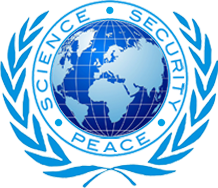Директори ГСУМ
Міжнародні директори
- John Hagelin, Ph.D. International President Quantum Physicist, USA; Director, Institute of Science, Technology and Public Policy; Executive Director, International Center for Invincible Defense
- Ashley Deans, Ph.D. Executive Vice President; Space Physicist, Canada; Director of International Programs, David Lynch Foundation
- Tony Nader, M.D., Ph.D. Chairman of the Board & Director of Brain and Cognitive Science, GUSP; International President, Global Country of World Peace
- Hon. Yukio Hatoyama, Ph.D. Prime Minister of Japan, 2009-2010; Member, House of Representatives, 1986-2012; Founder and Chair, Democratic Party of Japan
- Lt. Gen. José Martí Villamil Chief of Staff of the Army; Chief of Staff, Joint Command; Vice-Minister of Defense; General Secretary, National Security Council, Ecuador
- S.D. Maksymenko, D.Sc. Prof. and Academician, National Academy of Pedagogical Sciences; Chair, Society of Psychologists, Ukraine
- Guram Chachanidze, D.Sc. President, International Academy of Sciences of Education Informatization; Director, European Education Center; Academician, Georgia
- Ibrahim Said, M.Sc., M.Phil. Specialist in Nuclear Disarmament and Nonproliferation; UN Fellow; Ministry of Foreign Affairs, Egypt
- Agyeman Badu Akosa, M.D. President, Commonwealth Medical Association (Ret.); Director-General, Ghana Health Service (Ret.), Ghana
- Sélim el Sayegh, Ph.D. Professor and Director of CADMOS, University of Paris; Senior Advisor, UNESCO Program on Intercultural Dialogue; Minister of Social Affairs (2009-2011), Lebanon
- Hon. Kigyagi Arimpa John Senior Presidential Advisor on Environment & Climate Change; Member of Parliament (Ret.); Conservation Biologist, Uganda
- Aftab Ahmad Chattha, Ph.D. President of the National Academy of Young Scientists (NAYS), Founder and Chairman of the Center for Education, Science, and Technology (CEST), Pakistan
- Ricardo Navarro, D.Sc. Founder and President, Center for Appropriate Technology (CESTA), El Salvador
- Col. Brian Rees, M.D., M.P.H. Command Surgeon, Medical Corps, US Army Reserve, USA; Brigade Surgeon, Afghanistan
- Mohd Khalid Naseemi, M.S. Director-General, Afghanistan Environmental Society; Chief of Staff, National Environmental Protection Agency (2008-2013), Afghanistan
- Maj. Gen. Kulwant Singh, Ph.D., U.Y.S.M. Commander, Antiterrorism Combat Formations, India
- Lt. Col. Gunter Chassé Vice President of Military Science; Commander, Integrated NATO Air Defense, Air Force, Germany
- René Drucker Colin, Ph.D. Neuroscientist; Brain Physiologist; Former President, Academy of Sciences, Mexico
Д-р Джон Хегелін, Міжнародний президент
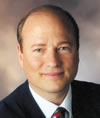 Джон Хегелін, доктор філософії, всесвітньо відомий квантовий фізик, педагог, спеціаліст державної політики, а також провідний прихильник миру.
Джон Хегелін, доктор філософії, всесвітньо відомий квантовий фізик, педагог, спеціаліст державної політики, а також провідний прихильник миру.
Доктор Хегелін отримав степінь бакалавра гуманітарних наук з відзнакою у Дартмутському колледжі, магістра мистецтв та доктора наук у Гарвардському університеті, проводив перші дослідженя у CERN (Європейський центр з ядерних досліджень) та SLAC (Стенфордський центр лінійних прискорювачів). Його науковий внесок в області електрослабкого об’єднання, великого об’єднання, супер-симетрії і космології включає в себе одні з найвідоміших використаних джерел фізичних наук. Він також зробив надзвичайно успішний та грандіозний внесок у розвиток єдиної теорії поля на основі суперструн. Тому д-р Хегелін входить в число висококласних фізиків, які реалізували мрію Ейнштейна про «теорію всього» через математичні формули єдиного поля, що у нашому часі є найпередовішими науковими знаннями.
Але також доктор Хегелін застосував ці найпередовіші знання для практичної користі людства. Він вперше застосував перевірені технології, засновані на теорії єдиного поля для того, щоб знизити рівень злочинності, насильства, тероризму і війни та для зміцнення миру в усьому суспільстві. Він опублікував новаторське дослідження, яке доводить існування «польових ефектів» великого радіусу дії свідомості, виробленої в рамках колективної медитації, і показав, що великі медитативні групи можуть ефективно знешкодити гострий суспільний стрес – тим самим запобігти насильству та соціальним конфліктам, а також надати практичну основу для постійного миру у всьому світі.
За останню чверть століття, доктор Хегелін провів міжнародне розслідування природи і походження свідомості, в тому числі вищого стану людської свідомості. У своїй основоположній книзі «Керівництво для досконалого уряду», д-р Хегелін показує, як за допомогою освітніх програм, які розвивають людську свідомість, та за допомогою політики і програм, які ефективно використовують закони природи, можна вирішити і запобігти гострих соціальних проблем та глибоко посилити урядові досягнення.
В знак визнання його видатних досягнень, доктор Хегелін був проголошений лауреатом престижної премії Кілбі, що визнає вчених, які внесли «значний внесок у розвиток суспільства за допомогою їх прикладних досліджень в області науки і техніки». Нагорода визнала доктора Хегеліна, як «вченого по традиції Ейнштейна, Джинса, Бора та Еддінгтона».
В даний час, Доктор Хегелін є міжнародним президентом Глобального Союзу Учених за Мир та директором Інституту науки, технологій та суспільної політики, провідним «мозковим центром» науки та технологій.
Ashley Deans, Ph.D., Executive Vice President
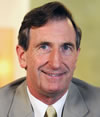 Ashley Deans, Ph.D., is an space physicist who has published extensively in leading refereed journals on quantum cosmology, space science, and sociology. He has conducted research at the Harvard College Observatory, Cambridge, Massachusetts, USA, and the Culham Center for Fusion Energy, Oxfordshire, UK.
Ashley Deans, Ph.D., is an space physicist who has published extensively in leading refereed journals on quantum cosmology, space science, and sociology. He has conducted research at the Harvard College Observatory, Cambridge, Massachusetts, USA, and the Culham Center for Fusion Energy, Oxfordshire, UK.
Dr. Deans graduated with honors in physics in 1969 from Imperial College, London University, UK. He received his Ph.D. in 1976 in space physics from the Centre for Research in Earth and Space Science, York University, Toronto, Canada, and received a post-graduate fellowship from the National Research Council of Canada. Dr. Deans is currently an Associate of the Royal College of Science.
As an educator, Dr. Deans has traveled to over 80 countries giving invited talks on “Consciousness-Based” education—education that incorporates GUSP’s brain-based approach to peace. His book, A Record of Excellence, and his published articles describe the benefits of this approach, and for this work he received the Sears-Roebuck Foundation Teaching Excellence and Campus Leadership Award. He is currently Director of International Programs for the David Lynch Foundation.
Dr. Tony Nader, MD, PhD, Chairman of the Board
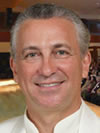 Dr. Tony Nader, MD, PhD, is Chairman of the Board of GUSP, as well as International Director of Brain and Cognitive Science.
Dr. Tony Nader, MD, PhD, is Chairman of the Board of GUSP, as well as International Director of Brain and Cognitive Science.
Dr. Nader is a world authority on the science of consciousness and the brain, including its application to conflict resolution and peace studies. He is also the Founder and Editor-in-Chief of the International Journal of Mathematics and Consciousness, and has published numerous books and scientific papers.
Dr. Nader received his MD degree from the American University of Beirut, where he studied internal medicine and psychiatry. He received his PhD in the area of Brain and Cognitive Science from the Massachusetts Institute of Technology (MIT).
Dr. Nader was a Clinical and Research Fellow in Neurology at the Massachusetts General Hospital, Harvard Medical School, USA, and Assistant Director of the Clinical Research Center (CRC) at MIT. He conducted research on neurochemistry, neuroendocrinology, and the relationship between diet, age, behavior, mood, seasonal influences, and neurotransmitter and hormonal activity, and on the role of neurotransmitter precursors in medicine.
His interest in the full potential of the human mind led him to the practice of Transcendental Meditation (TM), and he soon began working closely with Maharishi Mahesh Yogi, the Vedic sage who introduced TM. For years he traveled extensively worldwide as the International President of Maharishi University of Management.
In appreciation for his achievements and profound knowledge of both Vedic Science and modern science, Dr. Nader was honored by Maharishi with the title “Maharaja Adhiraj Rajaraam” and — as the successor of Maharishi — given responsibility for guiding the Global Country of World Peace, the umbrella organization for all of Maharishi’s worldwide legacy of administration, knowledge, and practical technologies.
Yukio Hatoyama, Ph.D.
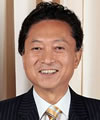 Yukio Hatoyama, Ph.D., was Prime Minister of Japan from 2009 to 2010. He served in the Japanese House of Representatives for more than 25 years and co-founded with his brother the Democratic Party of Japan in 1996, serving as its chair and secretary-general until he led it to victory in the 2009 elections.
Yukio Hatoyama, Ph.D., was Prime Minister of Japan from 2009 to 2010. He served in the Japanese House of Representatives for more than 25 years and co-founded with his brother the Democratic Party of Japan in 1996, serving as its chair and secretary-general until he led it to victory in the 2009 elections.
Dr. Hatoyama comes from a very prominent Japanese family that includes four generations of leading politicians and educators. His great-grandfather was speaker of the House of Representatives in the Imperial Diet in the 1890s and the president of Waseda University, and his great-grandmother founded Kiyoritsu Women’s University. His paternal grandfather founded both the Democratic Party and the Liberal Democratic Party, and served as Prime Minister of Japan in 1954–56. His maternal grandfather founded Bridgestone Corporation, the global tire manufacturer. His father was Japan’s foreign minister, and his brother was Japan’s minister of internal affairs and communication.
Dr. Hatoyama’s long list of accomplishments as Prime Minister include significant reductions of wasteful government spending and advances and increased funding to improve education, family life, healthcare, and housing. He substantially improved relations with other East Asian nations, notably China, and worked to create a more equitable and transparent relationship with the U.S. After stepping down as Prime Minister, he continued to serve in the House of Representatives for another two years and took a principled stand against the restarting of Japanese nuclear reactors.
In 2006, Time magazine named Dr. Hatoyama the sixth most influential person in the world in its annual “Time 100” issue. Among his many other awards, Dr. Hatoyama received the Sustainable Development Leadership Award of the 2010 Delhi Sustainable Development Summit for “his effort to confront climate change and leading his government to make it a main issue.”
Dr. Hatoyama holds a Ph.D. degree in industrial engineering from Stanford University, USA, and is a past professor at Tokyo Institute of Technology and Senshū University. He is currently honorary chairman and a senior consultant of Hoifu Energy Group Limited.
Lieutenant General José Martí Villamil de la Cadena
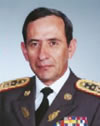 Lt. Gen. José Martí Villamil de la Cadena (Ret.) served as Vice-Minister of Defense and General Secretary of the National Security Council of Ecuador. A former brigade commander, he was Chief of Staff of the Army, Commander of Ground Theatre Operations, and Chief of Staff of the Joint Command. He was a professor at both the War Academy and the Institute of Higher Defense Studies in Ecuador and also a fellow of the Center for Strategic Studies in London.
Lt. Gen. José Martí Villamil de la Cadena (Ret.) served as Vice-Minister of Defense and General Secretary of the National Security Council of Ecuador. A former brigade commander, he was Chief of Staff of the Army, Commander of Ground Theatre Operations, and Chief of Staff of the Joint Command. He was a professor at both the War Academy and the Institute of Higher Defense Studies in Ecuador and also a fellow of the Center for Strategic Studies in London.
As Vice-Minister of Defense of Ecuador, Gen. Villamil initiated “The Coherence Project,” a field test of the Brain-Based Approach to Peace and its effects on the long-standing border war between Ecuador and Peru. He subsequently co-authored the article “Project: Coherence,” describing how 3,000 Ecuadorian soldiers practicing the Brain-Based Approach to Peace together quickly brought an end to this escalating conflict—thereby creating peace and improved commerce and diplomacy between the two nations.
Gen. Villamil is a graduate of the Inter-American Defense College in Washington, D.C., where he later served as Chief of the Ecuadorian Military Mission and Delegate to the Inter-American Defense Board. He graduated as a second lieutenant of Cavalry from the Ecuadorian Military School “Eloy Alfaro” in 1962. He retired from active duty in April 1996 and now collaborates with the newspaper El Comercio and the economic magazine Gestión.
S. D. Maksymenko, D.Sc.
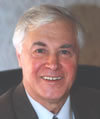 Sergiy Dmytrovych Maksymenko, D.Sc., is professor of psychology, Honored Scientist, and Academician of the National Academy of Pedagogical Sciences (NAPS) of Ukraine. He is also Secretary-Academician of the Department of Psychology, Age Physiology and Defectology and director of the G.S. Kostyuk Institute of Psychology at NAPS. He is a member of the International Council of Psychologists (USA); a member of the European Academy of Natural Sciences (FRN. Hannover); and chairman of the Society of Psychologists in Ukraine.
Sergiy Dmytrovych Maksymenko, D.Sc., is professor of psychology, Honored Scientist, and Academician of the National Academy of Pedagogical Sciences (NAPS) of Ukraine. He is also Secretary-Academician of the Department of Psychology, Age Physiology and Defectology and director of the G.S. Kostyuk Institute of Psychology at NAPS. He is a member of the International Council of Psychologists (USA); a member of the European Academy of Natural Sciences (FRN. Hannover); and chairman of the Society of Psychologists in Ukraine.
Dr. Maksymenko is the author of approximately 650 scientific publications, including 28 monographs, over 400 scientific papers, 30 course books and 32 textbooks. These include the first Ukrainian textbook, Psychology of Personality, the high school course book General Psychology (published in Russian, Ukrainian and English), and Experimental Psychology, Differential Psychology, Genetic Psychology, Medical Psychology, Pathopsychology, and other books.
Based on theoretical and experimental studies conducted under his guidance, Dr. Maksymenko founded the Ukrainian Scientific School of Genetic Psychology, which implements concepts of developmental and pedagogical instruction. He has supervised 300 Ph.D. theses and 48 doctoral theses.
As a full member (academician) of the International Council of Psychologists (U.S.A., 1991), Dr. Maksymenko coordinates research on the development and use of experimental methods in the field of education and personal development. Among his many awards is the Albert Schweitzer medal of the European Academy of Natural Sciences (Hanover, Germany, 2008).
Guram Chachanidze, D.Sc.
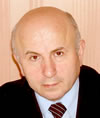 Guram Chachanidze, D.Sc., is president of the International Academy of Sciences of Education Informatization, director of the European Education Center, and an Academician of three educational institutions: the International Academy of Science and Innovation Technologies, the Academy of Georgian Education Sciences, and the International Informatization Academy of the United Nations.
Guram Chachanidze, D.Sc., is president of the International Academy of Sciences of Education Informatization, director of the European Education Center, and an Academician of three educational institutions: the International Academy of Science and Innovation Technologies, the Academy of Georgian Education Sciences, and the International Informatization Academy of the United Nations.
Dr. Chachanidze is a UNESCO expert in the field of language development in cyberspace. He is founder and president of the Georgian Sciences and Society Development Foundation “Intellect” and founder, editor in chief, and publisher of its international scientific journal Intellect.
Dr. Chachanidze is currently a professor at the Georgian Technical University. For many years he was head of the doctoral program and dissertation council at I. Gogebashvili Telavi State University, head of the Department of Informatics at Kutaisi State University, and head of the state exam commission at Sokhumi State University.
Dr. Chachanidze is the recipient of numerous awards and commendations, including an honorary doctorate from Zaman University of Cambodia, the Medal of Honor (since 1998), and the Ukrainian Medal of Yaroslav the Wise. In earlier work at the Tbilisi Metro Department, he was credited with 15 inventions, including intellectual property rights.
Dr. Chachanidze has edited three national mathematics manuals as well as 200 scientific works, guides, etc. in Georgia and internationally. He supervised the implementation of modern systems of management in numerous industrial and governmental settings, including the cities of Tbilisi and Kutaisi and the Ministry of Justice. He has also worked on projects to translate the Georgian constitution and language for the Armenian and Azeri populations. He has been a scientist-consultant for disabled warriors and veterans, and he has organized numerous scientific symposia, including international conferences on peace.
Ibrahim (Said) Ibrahim, M.Sc., L.L.M., M.Phil.
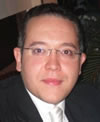 Mr. Ibrahim is a career diplomat and specialist in nuclear technology as applied to disarmament and nonproliferation issues. He is currently Consular Officer at the Egyptian Embassy in Tokyo. He previously served in the Egyptian Ministry for Foreign Affairs and as a Ministry representative to the League of Arab States (Cairo), as a United Nations Fellow, and at the Cooperative Monitoring Center, Global Security Programs, at Sandia National Labs in New Mexico, USA.
Mr. Ibrahim is a career diplomat and specialist in nuclear technology as applied to disarmament and nonproliferation issues. He is currently Consular Officer at the Egyptian Embassy in Tokyo. He previously served in the Egyptian Ministry for Foreign Affairs and as a Ministry representative to the League of Arab States (Cairo), as a United Nations Fellow, and at the Cooperative Monitoring Center, Global Security Programs, at Sandia National Labs in New Mexico, USA.
Mr. Ibrahim has an M.Phil. in Nuclear Engineering from the University of Ghana (2009–2011); an L.L.M. in International and Comparative Nuclear Law and Policy (2011) from the University of Dundee, Scotland; and an M.Sc. in Nuclear Science and Technology from the University of Manchester, England (2009–2012). He was a member of the Faculty of Mathematics and Natural Sciences, Department of Physics, University of Oslo, in 2012.
As a rising scientist and diplomat, Mr. Ibrahim was part of the James Martin Center for Nonproliferation Studies Next Generation Initiative. The CNS is part of the Monterey Institute of International Studies, which is the largest NGO in the United States that focuses on security and combating the spread of weapons of mass destruction (WMD). He has had extensive international training and experience, and has received many awards and honors for his work.
Agyeman Badu Akosa, M.D.
 Prof. Agyeman Badu Akosa, M.D., is the executive director of Healthy Ghana, chairman of the Executive Board of the African Population Health Research Centre, and a member of the Board of Governors for the ENSIGN – College of Public Health. He previously served as President of the Ghana Medical Association, President of the Commonwealth Medical Association, and Director General of the Ghana Health Service.
Prof. Agyeman Badu Akosa, M.D., is the executive director of Healthy Ghana, chairman of the Executive Board of the African Population Health Research Centre, and a member of the Board of Governors for the ENSIGN – College of Public Health. He previously served as President of the Ghana Medical Association, President of the Commonwealth Medical Association, and Director General of the Ghana Health Service.
Prof. Akosa is a Fellow of the Ghana Academy of Arts and Sciences, Ghana Medical Association, Royal College of Pathologists, West African College of Physicians and the Ghana College of Physicians. He has received Ghana’s second highest award, Companion of the Order of the Volta (CV), for public and medical services.
Prof. Akosa was previously a consultant histopathologist and clinical director of pathology in the UK and professor and head of the Department of Pathology in the University of Ghana Medical School.
Sélim el Sayegh, Ph.D.
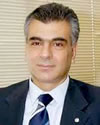 Sélim el Sayegh, Ph.D., is a globally renowned educator and an accomplished former governmental leader of Lebanon.
Sélim el Sayegh, Ph.D., is a globally renowned educator and an accomplished former governmental leader of Lebanon.
He is currently director of the Center for the Analysis of Disputes and their Modes of Settlement (CADMOS) and director of the Master’s Program in Diplomacy & Strategic Negotiations at the University of Paris, where he has been a Professor of Law and International Relations since 1993. He is also the co-founder and vice-president of the American Graduate School of Diplomacy and International Relations in Paris, which has been affiliated with Arcadia University in the USA since 1995. He has served as a visiting professor at 25 universities around the world, mostly in China, Asia, Europe, North America, and North Africa. His main area of specialization is conflict resolution, negotiation, diplomacy, and development.
Dr. el Sayegh was the Minister of Social Affairs in Lebanon from 2009 to 2011, serving under the Hariri Government. In this role he developed policies and strategies that greatly expanded and enriched the social sector in Lebanon. He led the development of the Social Pact and the National Strategy for Social Development in Lebanon; oversaw the implementation of Good Governance Standards for NGOs; created the first Middle Eastern Master’s Degree of NGO Management; established the National Documentation Center for Childhood; launched the “Child Friendly Cities Initiative” in three pilot municipalities; and developed standards for elderly caretaking centers. He also established the National Poverty Targeting Program, the National Program Against Addiction, and published the “Nahar al Kafif,” the first braille language weekly paper in the Arab World.
Dr. el Sayegh currently serves as Senior Adviser for the UNESCO Program on Intercultural Dialogue and has been on the board of the World Bank for Social Policies in the Middle East and North Africa region (MENA) since 2012. As a distinguished lecturer, he is frequently quoted in the national and regional media. He has received many international academic professional awards and appointments and is the author of numerous publications in French, English, and Arabic.
Dr. el Sayegh received his Ph.D. in International Law from Paris University in 1992. He also received a DEA (M. Phil) in History from the Sorbonne University (Paris I) and in Diplomacy and International Relations from Paris-Sud University in 1990 and 1989, respectively, as well as Bachelor’s degrees in Political Science, Law, and Business Management from different Lebanese universities.
Hon. Kigyagi Arimpa John, M.Sc.
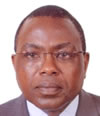 The Honorable Kigyagi Arimpa John is Senior Presidential Advisor on Environment and Climate Change to the President of the Republic of Uganda. He was a Member of Parliament in Uganda for over 20 years and was recognized as the best-performing MP in the Eighth Parliament by the Africa Leadership Institute Parliamentary Scorecard. He is chairman and managing director of Riverside Farm Ltd., where he was also executive director for 25 years.
The Honorable Kigyagi Arimpa John is Senior Presidential Advisor on Environment and Climate Change to the President of the Republic of Uganda. He was a Member of Parliament in Uganda for over 20 years and was recognized as the best-performing MP in the Eighth Parliament by the Africa Leadership Institute Parliamentary Scorecard. He is chairman and managing director of Riverside Farm Ltd., where he was also executive director for 25 years.
Mr. Kigyagi holds an M.Sc. in conservation biology from Mbarara University of Science and Technology. He is chair of the International Association of Agiric Students and a member of the Soil Conservation Society of Uganda, the Society for Global Ethics, the Forest Governance Learning Group (Uganda), and the REDD+ Uganda Working Group.
Aftab Ahmad Chattha, Ph.D.
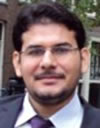 Aftab Ahmad, Ph.D., is founder and president of the National Academy of Young Scientists (NAYS) in Pakistan, where he oversees 3,500 registered members and 200 officials engaged in 15 national and international projects. He is also chairman of the Islamic World Young Scientists Academy; founder and chairman of the Center for Education, Science, and Technology (CEST); vice president of the World Merit Pakistan Council; founder of the Pakistan Stem Cell Society; and chief coordinator and former president of Sciforum Pakistan.
Aftab Ahmad, Ph.D., is founder and president of the National Academy of Young Scientists (NAYS) in Pakistan, where he oversees 3,500 registered members and 200 officials engaged in 15 national and international projects. He is also chairman of the Islamic World Young Scientists Academy; founder and chairman of the Center for Education, Science, and Technology (CEST); vice president of the World Merit Pakistan Council; founder of the Pakistan Stem Cell Society; and chief coordinator and former president of Sciforum Pakistan.
Dr. Ahmad earned his M.Phil. and Ph.D. degrees at the School of Biological Sciences, University of the Punjab in Lahore, Pakistan, and conducted postdoctoral research in tissue engineering at Nara Institute of Science and Technology in Japan. He is the author of five books and more than 50 publications in the field of cell and molecular biology. He is also coordinator of international affairs for Technology Times and Tech TV in Pakistan. He has organized and presented at over 50 workshops and 100 seminars and symposia, and was principal organizer of the 2012 National Essay Competition on Science for Peace.
Dr. Ahmad’s many awards include the Scientific Exchange Award from the American Association for the Advancement of Science (AAAS); the Young Investigator Award 2009 from the Pakistan Cardiac Society; selection as a Young Scientist Member of the World Economic Forum in 2012; and numerous grants and scholarships for international study and research. He is a Fellow of the Zoological Society of Pakistan and a member of many international scientific societies.
Ricardo Navarro, D.Sc.
 Ricardo Navarro founded the Salvadoran Center for Appropriate Technology (CESTA)—El Salvador’s largest environmental NGO—in 1980 to address his country’s acute social and environmental needs following a protracted civil war. As president of CESTA, Dr. Navarro worked in partnership with urban and rural communities to promote community-based strategies for reversing past environmental destruction and preventing future degradation, using a variety of innovative, sustainable technologies.
Ricardo Navarro founded the Salvadoran Center for Appropriate Technology (CESTA)—El Salvador’s largest environmental NGO—in 1980 to address his country’s acute social and environmental needs following a protracted civil war. As president of CESTA, Dr. Navarro worked in partnership with urban and rural communities to promote community-based strategies for reversing past environmental destruction and preventing future degradation, using a variety of innovative, sustainable technologies.
Dr. Navarro has also served as the president of Friends of the Earth International (FOE). These two organizations now work as one (CESTA-FOE) in El Salvador.
In 1995 Dr. Navarro received the prestigious Goldman Environmental Prize for his outstanding contributions to sustainable development. He received the Global 500 Environmental Prize in 1997, an award launched in 1987 by the United Nations Environment Programme (UNEP, 1972) to recognize and honor grassroots environmental and humanitarian achievement despite immense social, political and logistical obstacles.
Dr. Navarro studied in the USA at Purdue University (Indiana) and completed his D.Sc. in Technology and Human Affairs at Washington University, St. Louis, Missouri. He has authored numerous books and articles, and continues to educate and work with his fellow Salvadorans to address social and ecological challenges. (Photo courtesy of Goldman Environmental Prize.)
Colonel Brian M. Rees, M.D., M.P.H.
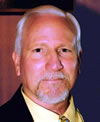 Brian Rees, M.D., retired from the US Army Reserve as a colonel after 37 years of commissioned service. A graduate of the US Army War College, he is a veteran of five tours in Iraq and Afghanistan, and spent eight years in hospital commands, including as chief medical officer for the Bagram Theater Internment Facility (home to all Taliban and Al-Qaeda detainees) and as outpatient physician for the detainees at Abu Ghraib prison in 2006 and at Camp Bucca in 2007. He is a member of the Veterans of Foreign Wars (VFW) and the American Legion. Currently he serves as co-chair of Operation Warrior Wellness of the David Lynch Foundation, and as director of TM4Vets, enhancing the availability of the Transcendental Meditation program for veterans and service personnel.
Brian Rees, M.D., retired from the US Army Reserve as a colonel after 37 years of commissioned service. A graduate of the US Army War College, he is a veteran of five tours in Iraq and Afghanistan, and spent eight years in hospital commands, including as chief medical officer for the Bagram Theater Internment Facility (home to all Taliban and Al-Qaeda detainees) and as outpatient physician for the detainees at Abu Ghraib prison in 2006 and at Camp Bucca in 2007. He is a member of the Veterans of Foreign Wars (VFW) and the American Legion. Currently he serves as co-chair of Operation Warrior Wellness of the David Lynch Foundation, and as director of TM4Vets, enhancing the availability of the Transcendental Meditation program for veterans and service personnel.
Dr. Rees received his medical degree and master’s degree in public health from Tulane University and is a board certified family physician. He has had his own private practice; after 9/11 he served as a physician in the California state prison system, as well as in the Veterans Administration.
Dr. Rees has researched the application of technologies of consciousness for the reduction of violent conflict, terrorism, and war and builds a case for this approach in his book Terrorism, Retaliation and Victory: Awaken the Soul of America to Defeat Terrorism without Casualties. He has also researched and written about the promotion of soldier resilience and resolution of PTSD, most recently as lead author of two published studies about the effects of Transcendental Meditation practice in resolving posttraumatic stress in Congolese refugees. His most recent book, Detained: Emails and musings from a spiritual journey through Abu Ghraib, Kandahar and other garden spots, was published in 2015. He has also published extensively in military journals and online sources about Invincible Defense Technology and its applications.
Mohd Khalid Naseemi, M.S.
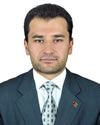 Mr. Mohd Khalid Naseemi is founder and Director-General of the Afghanistan Environmental Society, a leading national organization for environmental protection and sustainable development. He was chief of staff of the National Environmental Protection Agency (NEPA) from 2008 to 2013 and has also worked as a consultant and communication specialist though the Consultancy Services for Building Regulatory Capacity in a World Bank–funded NEPA project. He has participated in more than 40 international conferences on sustainable development and environmental issues in different counties around the world.
Mr. Mohd Khalid Naseemi is founder and Director-General of the Afghanistan Environmental Society, a leading national organization for environmental protection and sustainable development. He was chief of staff of the National Environmental Protection Agency (NEPA) from 2008 to 2013 and has also worked as a consultant and communication specialist though the Consultancy Services for Building Regulatory Capacity in a World Bank–funded NEPA project. He has participated in more than 40 international conferences on sustainable development and environmental issues in different counties around the world.
Mr. Naseemi has a Master’s degree in Political Science from Islamic Azad University and another Master’s Degree in Environmental Management, as well as a Diploma in Pharmacy. He has had extensive management and leadership experience for more than 15 years in government, NGOs, and CSOs. He is currently a member of the NEPA Civil Society Board and of the Green Environment and Development Organization, a leading NGO.
Major General Kulwant Singh, Ph.D., U.Y.S.M.
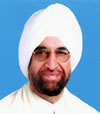 Major General Kulwant Singh, Ph.D., U.Y.S.M. (Ret.), is a veteran of two wars with Pakistan (1965 and 1971). He commanded two active combat formations, both in snowbound high-altitude areas. He fought terrorism in Sri Lanka and India in highly challenging and hostile environments. He was awarded the Uttam Yudh Sewa Medal, the second highest decoration for senior officers during operations in Sri Lanka as part of the IPKF (Indian Peace Keeping Force).
Major General Kulwant Singh, Ph.D., U.Y.S.M. (Ret.), is a veteran of two wars with Pakistan (1965 and 1971). He commanded two active combat formations, both in snowbound high-altitude areas. He fought terrorism in Sri Lanka and India in highly challenging and hostile environments. He was awarded the Uttam Yudh Sewa Medal, the second highest decoration for senior officers during operations in Sri Lanka as part of the IPKF (Indian Peace Keeping Force).
Major General Singh received his Ph.D. and M.Sc. in Defense Studies from Chennai University; a postgraduate diploma in Human Resource Development from Indira Gandhi National Open University (IGNOU), New Delhi; and a postgraduate diploma in Management from the Regional College of Management and Technology (RCMT).
Today he is leading an international group of generals and defense experts that advocates Invincible Defense Technology to promote national security and peace. He has published extensively on IDT in countries around the globe.
Lieutenant Colonel Gunter Chassé
Vice-President of Military Science
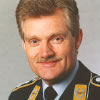 Lt. Colonel Gunter Chassé (Ret.) is a career officer who served with the German Air Force, holding command positions in the Integrated NATO Air Defense. He also served in Home Defense, with territorial responsibilities based on his specialized military training in air defense weapon systems. He was decorated with the Honorary Cross of the German Armed Forces in Gold.
Lt. Colonel Gunter Chassé (Ret.) is a career officer who served with the German Air Force, holding command positions in the Integrated NATO Air Defense. He also served in Home Defense, with territorial responsibilities based on his specialized military training in air defense weapon systems. He was decorated with the Honorary Cross of the German Armed Forces in Gold.
Colonel Chassé has traveled widely in Europe, Africa, the Middle East, India, Southeast Asia, Australia and New Zealand to promote the Invincible Defense Technology, a proven, field-tested technology for the prevention of war and for achieving national security. He is founder and director of the Institute of Invincible Defense in Germany and has authored many published articles on the Invincible Defense Technology.
René Raúl Drucker Colin, Ph.D.
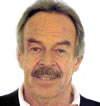 Dr. René Drucker Colin conducts research and teaches at the Institute of Cellular Physiology at the National Autonomous University of Mexico (UNAM), Mexico City, where he is researcher emeritus. He was President of the Mexican Academy of Sciences from 2000 to 2002.
Dr. René Drucker Colin conducts research and teaches at the Institute of Cellular Physiology at the National Autonomous University of Mexico (UNAM), Mexico City, where he is researcher emeritus. He was President of the Mexican Academy of Sciences from 2000 to 2002.
His current focus is molecular neuropathology and includes the effects of magnetic fields, adult stem cells, neurophysiology of sleep, nicotine and depression, and transplants in neurodegenerative processes. He has published 250 scientific papers and has developed science programs for radio and television for over 10 years, and both his research and journalism have been recognized worldwide.
In 2012 Dr. Drucker Colin was honored with the UNESCO Albert Einstein Medal in Science, given in India, for his ardent promotion of science. His numerous other awards include a Guggenheim Fellowship in 1980, the National Prize of Sciences and Arts in 1987, the UNAM Scientific Research Award in 1988, the Prize of Mexican Health Foundation in 1995, and the Medical Excellence Award of the Ministry of Health in 2000.
Dr. Drucker Colin’s earlier academic positions include UNAM Head of Department, Neuroscience Institute of Cellular Physiology (1985–1990); Department Head of Physiology, Faculty of Medicine (1991–2000); and Coordinator of Scientific Research (2000–2007).
Dr. Drucker Colin became a psychologist in 1962 at UNAM. He earned his master’s degree in psychophysiology (1964) at Northern Illinois University, USA and his doctorate in physiology (1971) at the University of Saskatchewan, Canada.
